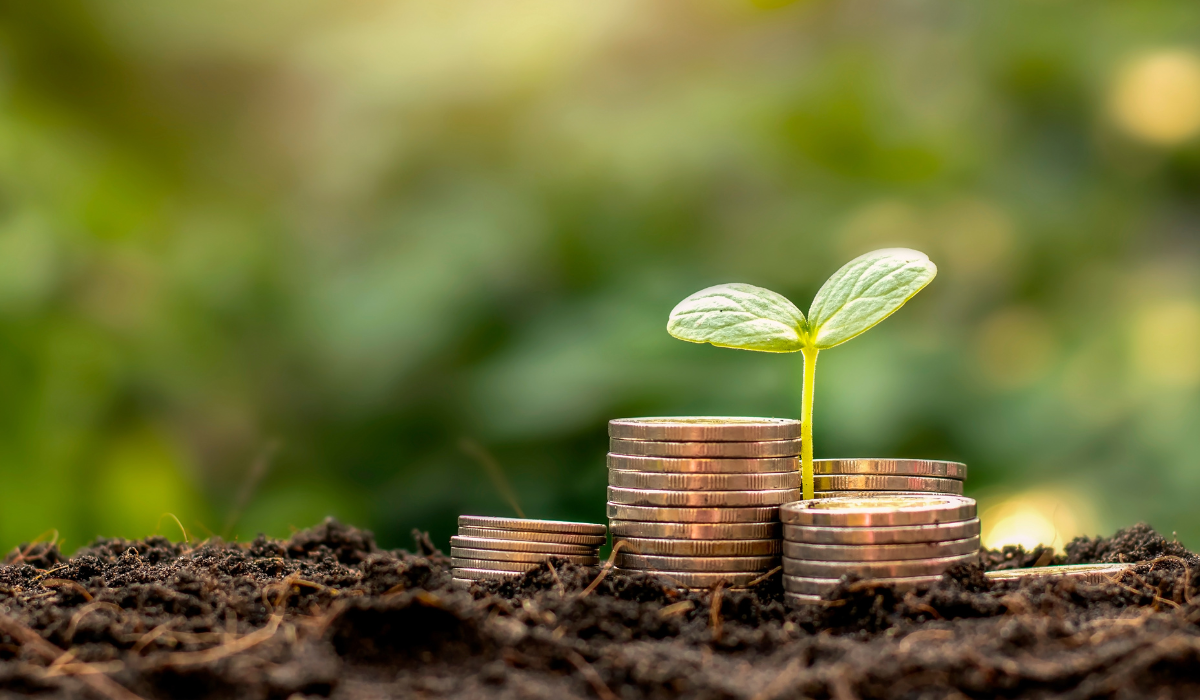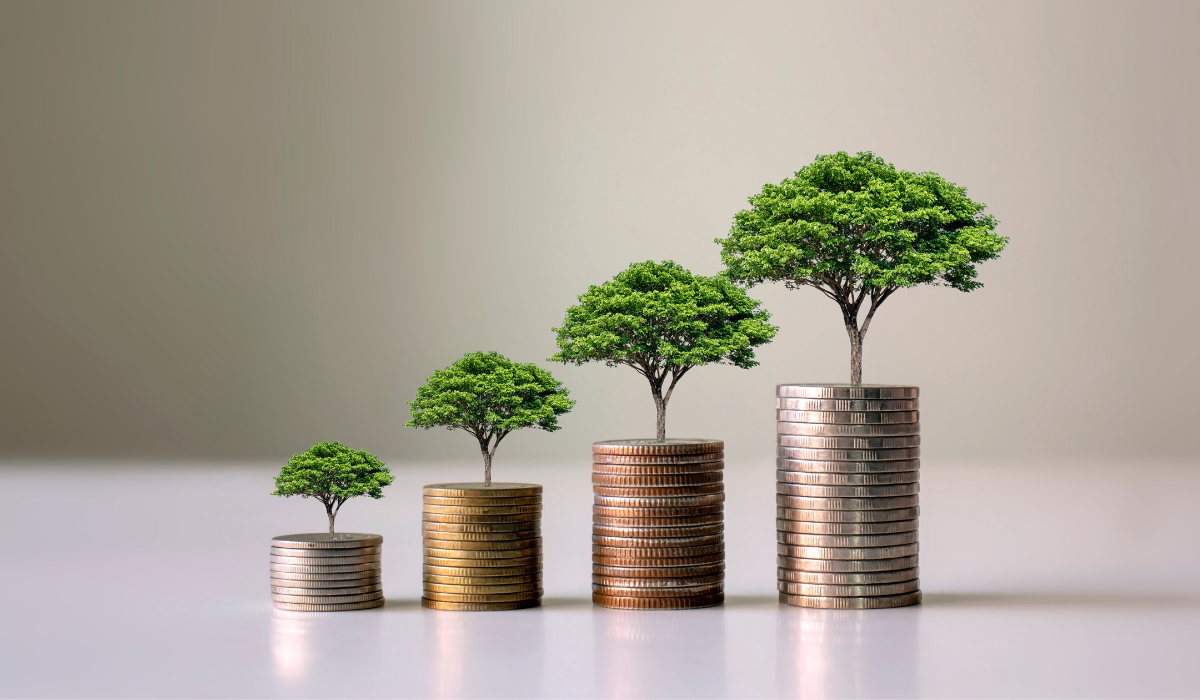9 Ways to Save the Earth and Your Wallet

In an effort to protect our environment and manage our finances, most of us strive to make eco-friendly financial decisions. But sometimes it can be hard to know where to start.
First, it’s essential to understand the impact that even small changes can have on both our personal finances and the environment. In this blog post, I’ll share a few simple ways to help you save money and reduce your carbon footprint at the same time.
By implementing these environmentally-friendly money saving techniques into your life, you can not only save some cash, but also do your part in safeguarding the Earth’s future for generations to come.
Balancing Financial Savvy with Environmental Responsibility
Achieving financial stability doesn’t mean sacrificing your commitment to environmental responsibility. In the long run, certain green initiatives that help fight global warming can actually be very cost-effective.
As we celebrate Earth Day and Month in the United States, it’s important to recognize the impact our financial choices have on the planet. Every time we spend, save, or invest, we’re transferring energy to products, services, and relationships that can either harm or help our environment.
That’s why I, Erika Wasserman, Your Financial Therapist, am inviting you to join me in making small eco-friendly changes to the way you manage your finances. By making conscious choices about how we use our money, we can not only have a positive impact on our planet, but also on our wallets.
In this blog post, I’ll share some simple yet effective ways to incorporate sustainable practices into your financial habits. From choosing environmentally-friendly products and services to investing in companies that prioritize sustainability, we’ll explore a few different ways to make a positive impact on planet Earth while still achieving our financial goals.
So let’s lean into making these small changes together and start creating a more sustainable future for ourselves and our whole planet.
Discover How to Save Money and the Earth Effortlessly
As Your Financial Therapist, I work with people all over the world to grow their relationship with money.
However, I’m not just a financial expert—I’m also a single mom of three kids. Not surprisingly, I often find myself echoing my father’s words in my daily life. From telling my children to turn off the lights and take shorter showers that use less water, to reminding them that “we don’t own the electrical company” and, living in Florida, telling them, “I’m sorry you’re sweating in the house, but the air conditioner stays at 76. If you need to cool off, go for a swim!”
As a child, I didn’t understand why my dad was always “yelling” about these little things. Now, as an adult, it’s clear that the values and traits he passed down were all about saving money AND being a conscious consumer of the earth.
Now, my teenage girls and I work together to find eco-friendly options that not only benefit the planet, but also help us save money on our bills each month. By making small changes that benefit the planet such as using energy-saving lightbulbs and taking shorter showers, I’m able to save money on my monthly bills while also doing my part in protecting our environment. Who said you can’t have it all!
In this post, I’ll share with you 3 simple tips that have proven to be effective for my family, friends, and clients. I recorded a mini session that includes more information and more ways to save money while making a positive impact on our planet, and if you’re interested in purchasing this session you can email me at [email protected].
So, let’s begin with my top 3 Earth friendly ways to spend and discover how we can all make a positive impact on our planet and our wallets.

Earth Friendly Ways to Spend
In today’s world, many people are looking for ways to live in a more sustainable and environmentally friendly way. One small way to make a big difference is by changing the way we shop.
By adopting earth-friendly habits when we make purchases, we can help reduce waste, conserve natural resources, and help tackle the climate crisis.
By choosing to shop in eco-friendly ways, you can reduce your carbon footprint, conserve natural resources, and help prevent pollution.
Spend Tip: Buy in Season
One of the best things you can do to reduce your environmental impact and perhaps the first thing to consider is to buy fruits and vegetables that are in season. Buying produce in season has multiple benefits that go beyond just taste and nutrition. When you choose to buy in season, you’re also making a more eco-friendly and cost-effective choice that has a less harmful impact on the environment.
This is because out-of-season produce often involves large-scale food production, which requires energy-intensive practices like heated greenhouses or long-distance transportation and storage, which results in more carbon emissions. This means that you can help reduce greenhouse gas emissions by simply buying fruits and vegetables that are in season. Plus, buying in-season produce often means that you can often find it at a lower price since it doesn’t have to be transported long distances.
Additionally, buying locally grown produce in season supports local businesses and farmers, which contributes to a more sustainable food system.
One way to make a positive impact is to visit a local farmers’ market rather than buying everything at a grocery store. It’s a fun activity that you can do with your family and friends, and it helps support the local community. In fact, the kids and I visit our local farmer’s market every two weeks to pick out our favorite fruits and vegetables. It’s a great way to give back to the community and help the environment while also enjoying delicious, fresh produce.
Related: 50 Conversation Cards to Start the Conversation About Your Relationship with Finances

Earth Friendly Ways to Save
Save Tip: Bank Green
When it comes to choosing a bank, there are many options available, but it’s important to consider more than just fees and customer support. You should also take a close look at the bank’s environmental and social practices to ensure that it aligns with your values.
A bank is a good fit for you (or you’re at least heading in the right direction) if it:
- has a clearly stated environmental policy;
- offers sustainable products like green loans, eco-friendly credit cards, and investment options in sustainable industries;
- has implemented green initiatives to reduce waste, support renewable energy projects, or use energy-efficient buildings;
- partners with environmentally-friendly companies that work to protect the environment;
- publishes annual corporate social responsibility reports.
If you find that your current bank is not prioritizing sustainability or doesn’t have sufficient environmental policies and practices, you might want to consider switching to a green bank that aligns more closely with your values.
By choosing green banking options, you can spend and save your money while also taking care of the environment.
Related: Free Money Relationship Quiz

Earth Friendly Ways to Invest
Investing is a personal decision that can be influenced by our background, religion, and values. Some individuals will always invest in certain companies, while others will avoid them for personal reasons, regardless of potential returns.
Investing in eco-friendly options allows individuals and businesses to align their values with their financial decisions and make a positive impact on society and the environment.
With this in mind, the first step to eco-friendly investing is to educate yourself.
Invest Tip: Educate Yourself
When working with clients who are interested in investing in eco-friendly companies, I always take a moment to discuss terminology, acronyms, and important factors to be mindful of before investing.
With so many new terms emerging in this growing space, especially in recent years, it can be overwhelming.
Some examples include:
- SRI
- ESG
- Green Bonds
- Greenwashing
- Renewable energy
- Sustainable agriculture
- Green transportation
- Environmentally conscious
- And many more.
Having a clear understanding of the terms used will allow you to make informed decisions and choose investments that align with your financial goals and values. Whether you’re a seasoned investor or just starting out, taking the time to educate yourself on investment terminology is truly essential for paving a path to financial success.
By knowing what key terms mean and how they impact your investments, you can make confident decisions that will help you achieve your desired outcomes. Of course, it all starts with understanding the fundamentals so you can navigate the complex world of investing with ease.
Related: Helpful Financial Resources
Conclusion
Embracing eco-friendly living can be a challenge for some, but the rewards are well worth the effort. My hope is that you’ll use the thoughtful actions outlined in this article to save, spend, and invest in ways that improve the environment as well as your finances.
Thinking in eco-friendly ways can help drive innovation, create jobs, and support the growth of industries that are vital to our planet’s health and well-being.
Living an eco-friendly lifestyle can have many benefits, including reducing environmental impact, saving money on utility bills and grocery expenses, and improving overall health and well-being.
And finally, by modeling eco-friendly behaviors and values, those around you will see your sense of responsibility and respect for the environment. Who knows, you might even inspire a ripple effect along the way, inspiring others to join in on the movement towards a greener future and a better world.
Because, as we know, small changes DO make a big impact for both your wallet and Mother Earth.
To go deeper on your journey of saving the earth and your wallet, email me to purchase my recorded mini session on this topic: [email protected]

